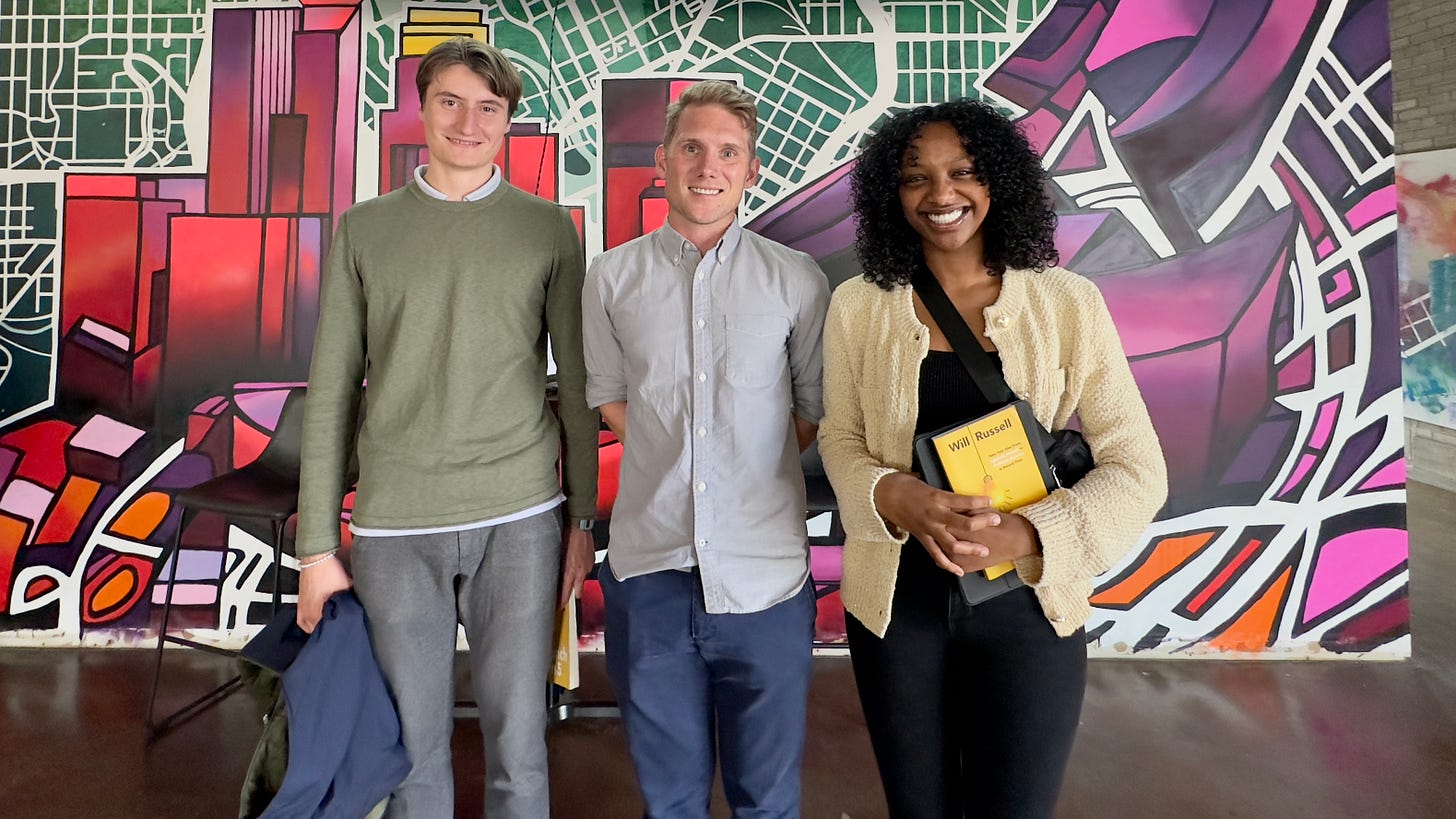If you’re an ideas person, an artist, an entrepreneur there are essentially three criteria which describe your story, aside from impact:
WHO you are—what defines your approach, your predilections, your driving force
WHAT you do—i.e. your output, your focus, your distinct offering
WHERE you do it
We’re in the midst of Twin Cities Startup Week here in Minneapolis which presents a marvelous opportunity to think about this last ingredient.
Where you choose to dwell (if you’re fortunate enough to be in control of such things) can have a huge impact on your ability to ideate, never mind connect, resource, sell and persuade others to your cause. Richard Florida and Brad Feld have written persuasively on this topic. Their point, writ large, is to clarify the unfair advantages of aligning an individual vision with a harmonious location.
In last night’s class we twisted a few famous scenarios…



Then we discussed the role, or importance of Place for ideas we’d seen and heard pitched across TCSW, especially during last night’s MN Cup Finals. Quite often, the motivating challenge was entirely rooted in where the entrepreneur came from.
We’re very fortunate to sustain so many diverse entrepreneurs, founders, supporters, mentors and funders in our part of the world. I’m thrilled our MCAD students have been able to get out and engage with lots of savvy and engaging presenters.
What sort of environment, what sort of community do you and your ideas need in order to thrive?
AI+CREATIVITY UPDATE
We’re not even a year into ChatGPT. But several trends are clear: First, speed. The impact of AI is occurring much faster than previous pivots like desktop computers, the Internet and social media. And second: It’s pervasive. Where many roles and industries could effectively ignore the Internet, or social, and for quite a while, AI is demonstrating profound value, quickly, across almost every domain.
There’s just one update this week and you should block time to click the links and read further.
😮 “Those are some very big impacts.”
Wharton Prof Ethan Mollick is back summarizing newly published research alongside colleagues from Harvard and MIT asking the question: Does access to generative AI really improve quality of work?
“For 18 different tasks selected to be realistic samples of the kinds of work done at an elite consulting company, consultants using ChatGPT-4 outperformed those who did not, by a lot. On every dimension. Every way we measured performance.”
“Consultants using AI finished 12.2% more tasks on average, completed tasks 25.1% more quickly, and produced 40% higher quality results than those without.”
The full research paper is here.
To summarize: Mollick et al utilized 758 Boston Consulting Group consultants to complete the aforementioned tasks—things like, “Segment the footwear industry market based on users” or “Propose at least 10 ideas for a new shoe targeting an underserved market or sport.” A random group of the consultants had no access to AI. Another had access to ChatGPT-4. And a final group had GPT-4 access in addition to training.
What happens when everyone is good at something?
The benefits of AI occurred across all tasks, and all levels. Mollick writes, “The consultants who scored the worst when we assessed them at the start of the experiment had the biggest jump in their performance, 43%, when they got to use AI. The top consultants still got a boost, but less of one.” But here’s the quandary we’re really going to wrestle with:
“I do not think enough people are considering what it means when a technology raises all workers to the top tiers of performance.”
This is where things get weird.
Or as Mollick puts it,
“No one actually knows the full range of capabilities of the most advanced Large Language Models, like GPT-4. No one really knows the best ways to use them, or the conditions under which they fail. There is no instruction manual. On some tasks AI is immensely powerful, and on others it fails completely or subtly. And, unless you use AI a lot, you won’t know which is which.”
Unless you use AI a lot.
You have your homework.






A friend sent me a note in reflection to this post. Essentially: Then explain Spotify in Sweden and not Los Angeles. Or Shopify in Canada and not, say, New York. Or really any tech-centric startup. And the answer is, there are no absolutes! The theory of where is only part of the broader picture for entrepreneurs. And there will always be outliers who succeed in unexpected ways and in unexpected places.